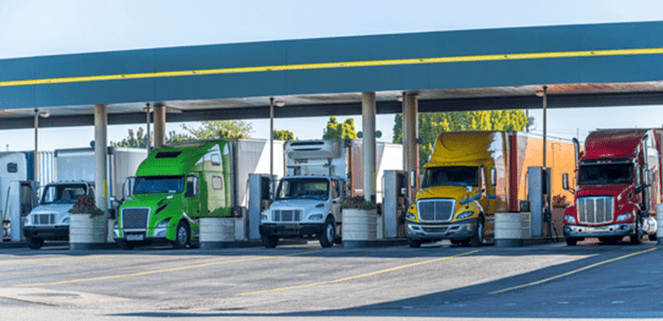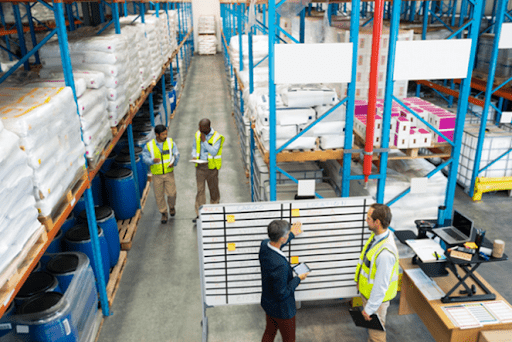Will Zone Skipping Help You Become More Competitive in 2026?
Could implementing a zone skipping tool give you a competitive advantage come 2026? We asked fulfillment, retail, and 3PL experts for their...
3 min read
FreightPOP : Jul 13, 2020

Supply chain management relies on synchronization. Disruption in the chain costs money and goodwill with customers and suppliers. How can AI enhance supply chain management?
This post is part 2 in our AI in Parcel & Freight series. In our first post, AI in Procurement and Freight Consolidation, we found a consensus among logistics experts that artificial intelligence is already either being used by non-enterprise businesses, or should be. Businesses that ship are encouraged to research the AI applications that exist and how they can help you improve efficiency, save money, and stay competitive.
We consulted experts to learn how AI and machine learning, a subset of AI, are being used to improve delivery route optimization and enable strategic resource management.
AI is helping businesses save on fuel costs and achieve rapid fulfillment objectives. AI is also paving the way for autonomous delivery on long haul and last-mile deliveries. A great example of how AI can help optimize delivery routes can be seen with UPS' extraordinary result in saving on carrier fuel costs. By using an AI and machine learning platform they developed called ORION (On-Road Integrated Optimization and Navigation), they save 10 million gallons of fuel annually. This translates to a reduction of 100,000 metric tons of CO2 emissions and a savings of $300-400 million!
Ivan Kot, Senior Manager at digital transformation company Itransition, outlined how AI allows rapid fulfillment via delivery route optimization. He told us:
"With the diversification of delivery options and the increasing demand for rapid order fulfillment, determining a balanced route manually becomes an impossible task. A dedicated AI/ML system can quickly crunch historical and real-time data, from trip tickets and drivers’ performance metrics to the order volume and size, in order to calculate the best route for each vehicle.
Reinforced with a predictive analytics algorithm, this type of software can continuously scan for weather forecasts and traffic reports to predict delivery obstacles and adjust the route in real-time to help the driver avoid road events."

A Guide to Digitizing Logistical Supply Chains
Consumer appetites for same-day and next day deliveries, coupled with the growth in online competition, means investing in AI tools that integrate into current systems should be prioritized. It's technology that is too good to ignore.
Nir Bar-Lev, CEO of AI development company Allegro.ai, told us:
"AI in transportation & supply chain will have a huge impact. Software can help businesses optimize their delivery routes, using real-time traffic data; AI will drive autonomous trucking and vans to first reduce driver load on highways and eventually replace drivers altogether.
AI will help optimize loads such that containers will be loaded and offloaded using the maximal space efficiency and sorted in a way that optimally fits the delivery route."
As we discovered in part 1 of this series, logistics experts indicate that as more of this technology becomes affordable for non-enterprise businesses, your competition WILL be incorporating these advantages.

AI also helps businesses that ship better plan their resource management, improving on carrier contract negotiations, vendor costs, and operational efficiencies.
Itransition's Ivan Kot also shared with us how he sees AI improving the ability of businesses to strategically manage resources. He said:
"In the context of continuously rising fuel and equipment prices and labor costs, companies of all sizes are forced to refine their resource utilization methods, and a combination of AI and ML fits this purpose.
Combining current economic conditions and individual business objectives with the number and quantity of shipment orders, AI can help rationalize fleet management and job scheduling. ML can draw on historical data to predict equipment failure and detect critical bottlenecks in the supply chain ecosystem."
3 Tips for Digitizing Your Supply Chain
MarketOrders Co-Founder & COO, Sukhi Jutla, also shared her perspective on the benefits of AI on resource management. She said:
"Predictive analytics will be used to forecast future orders and better manage stock inventory; machine learning will become more commonplace so that the data is used to obtain key insights to make better decisions. ...(this technology) will be able to reduce their costs, increase their margins, and provide better customer services by optimizing supply chain processes and offering a more sustainable way of getting their products."
How to Spot Carrier Invoice Discrepancies!
AI helps businesses set benchmarks, audit, and analyze performance to help with better supplier selection and give intelligence for contract negotiations. This enriches relationships with suppliers and improves customer service.
The power of predictive analytics and capturing and using the right data is making huge strides in every industry. We hear about AI, machine learning, and smart algorithms almost daily. Supply chain management is no different. From operational efficiency and cost reductions to better people and supplier management, supply chains are already benefiting from AI with the technology and benefits swiftly evolving.
Want more great content? Check out our free two-ebook bundle: Integrations & Digitizing Logistics!

Could implementing a zone skipping tool give you a competitive advantage come 2026? We asked fulfillment, retail, and 3PL experts for their...

Artificial intelligence has been with us for some time now. And while there is impressive technology already available for big business, what about...

Technological advances and new, inventive strategies have touched processes in every industry, including shipping and logistics. These emerging...